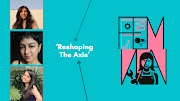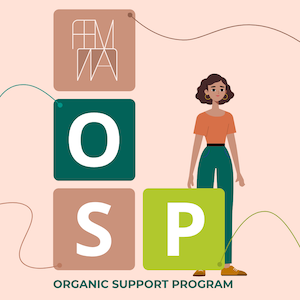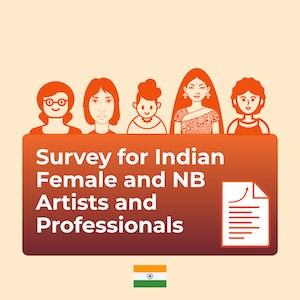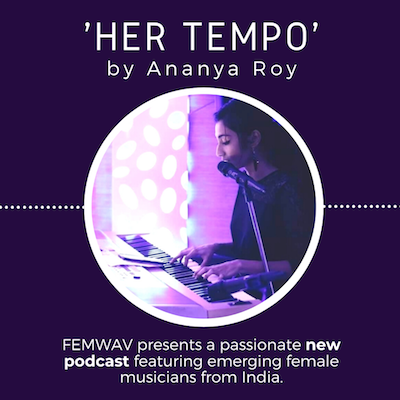At age 89, Elaine Radigue is a genuine source of inspiration and admiration for artists who seek discovery via sound. Elaine is a lifetime of sonic exploration! Born in the mid-1930s, Elaine studied western classical music in France during in her 20’s, eventually turning to post-classical avenues. She studied “Music Concrete” under the tutelage of Pierre Schafer and Pierre Henry. Her initial foray into the world of abstract composition started out with tape loops, feedback signals, psycho-acoustic effect chambers and prepared piano - eventually leading to the ARP 2500 modular synthesizer. In hindsight, her conceptual compositions in the 60s and 70s paved the way for future composers. Elaine's synthesizer journey is based on the ascension of frequencies, correlation of oscillators (tone generators) and electronic automation - a lot of which predates the music of “ambient music gurus” like Brian Eno and Raymond Scott. Elaine’s extraordinary albums, Tryptch (2009), Islas Resonantes (2004) and Trilogie De La Mort (1997) are a must listen for all ambient music lovers. The detail, span of time and minimalism that Elaine produced via synthesizers (notably the ARP2500) leads the listener into meditative spaces, into the vast universe where frequencies and tones play out in an “atomic” sense. When asked about the last 50 years of her journey as a composer, she says “I think there’s absolutely a sense of continuity in what I’m doing. In fact, there’s not that much difference between the electronic period and what I do now, working with musicians… like a river, continuous change and development….”
Minimal and organic are two words that may encapsulate Zsófia Boros’ music. Signed on the esteemed avant-garde label ECM, Zsófia’s music is at the crossroads of native Hungarian, western classical, Brazilian, Argentine and Oriental aesthetics. Her new album titled “En Otra Parte” released on ECM Records this year, contains just two compositions, signifying minimalism with very little artificial production gimmicks. My approach is always very intuitive; when a piece of music grips or
touches me, I want to reflect it – to become a mirror and convey it.” she says in a recent interview. “What fascinates me about music, and also speech, is that not everything, has to be pronounced or be played out…” The classical guitarist is an example of quiet virtuosity, who remains outside the given populism, in spite of having a rich experience (classical, folk, Latin jazz). When asked about what inspires her to compose, Zsófia replies rather poignantly by saying “the vibrations within the music, eventually should create and transmit a tender feeling of happiness…”
Rural women and girls from West Bengal are drumming up a movement! It's about empowerment and conserving the legacy of 'Dhak' (Drum). For centuries, Bengal’s festive season culminates with Durga Puja (celebration of goddess Durga vanquishing evil on earth) marked by the sound of Dhak beats. Ten days and nights of celebration, elaborate rituals and folk-dance, with Dhakis drumming in the background. Over the last few decades, loudspeakers and recorded music has invaded Durga Puja events, pushing thousands of Dhak players out the scene. “Earlier Dhak ensembles were always men, and the tradition passed from father to son. That is changing now, as teenage girls and women, especially from rural areas of West Bengal are coming forth to revive the tradition and build new community…” states 32 years old Jyotsana Das, heading a Dhak ensemble in 24 Paraganas district (close to Kolkata). “It’s liberating for the girls and women .. it provides us with a sense of community and identity. They also aspire to perform at a national level one day” states Gokul Chandra Das who created a Dhak school, attended by various Dhakis, especially females from West Bengal. “Maybe one day, the Dhak will be up there with the Tabla and Mridangam… but for now we must unite and aspire for better pay and a sustainable career…” expresses Promila Dasgupta, a young female Dhaki from Kolkata.
“I Sing To That Bird Knowing He Won’t Sing Back…” wrote Portuguese-American poet Marina Carreira. She draws from spheres of her experiences, webbed in feminism, immigration, faith and politics. Fado is at the heart of her narrative, as it’s been for thousands of Portuguese women for centuries. Marina Carreira, is one voice who represents Fado, in it’s multitude forms (poetry, song, music, dance, resistance, transgender etc). Fado, which has been inscribed in the UNESCO Intangible Cultural Heritage Lists, is perhaps the best recognized ambassador of Portuguese culture abroad. “During the dictatorship of Oliviera Salazar, which lasted almost 30 years, pushing Portugal into decades of regression and conservatism, the regime also attacked Fado, persecuting and driving out many poets, bards, singers and musicians, who fled to Brazil, America, Argentina, Spain and Goa…” states Marina, who has extensively worked at Rutgers University documenting the legacy of Fado.
She insists that the new generation which embraced Fado, did alter the form, reflecting the issues gripping society today. Voices of Fado today address racism, nationalism, transphobia and gender violence. However Fado at it’s roots remains about identity and female resistance. Amália Rodrigues, the ‘Queen of Fado’ died in 1999 and her legacy was rapidly embraced by new ‘Fadistas’ such as Ana Moura, Mariza, Raquel Taveres, Carminha, Cristina Branco, Mísia and Camané. The newest voice in Fado are the transgender duo Fado Bicha. The duo voices the narrative of the minorities. Those marginalized peoples, who don’t usually find open spaces, where they can be heard. “Most words used to refer to gay people are insults and related to abuse and violence. So we grow up without positive references associated with love, body and sex…” from a recent interview of Fado Bicha. “Fado traveled far and wide, and that makes the form relevant globally. I am getting ready to collaborate with traditional Fado singers from Goa…” says Carminho, born and raised in Lisboa.
The social impact of rap music which exists in Senegal today has cut through patriarchal lines of control and domination. The economy must change with gender equality. One such example of women's empowerment via direct representation and intervention is the Urban Women Week. U.W.W is collectively owned and organised by Senegalese women, with NGOs and musicians, promoting local female talent, especially that of Rap and Hip-Hop. The festival is a great example of grassroots empowerment. “There are thousands of female rappers in Senegal. Watch out!" hark the girls of G.O.T.A.L the all-female rap outfit from Senegal. “Our songs resonate locally first” says Toussa. Even as the style is imported, the aesthetics and diffusion of Rap in Senegal and West Africa is peculiar, being collective yet competitive.
In 2018, rapper Black Queen launched her manifesto to address violence against women in Senegal. Even as men outnumber women in Senegal inside the Rap Hip-Hop arena, the number of female rappers and DJs is on the rise bit by bit. Since 2014 more female performers have begun performing live and putting out singles and albums. Notable on the scene are artists like Moona, Toussa, Mina La Voilée, O.M.G, Mamy Victory plus graffiti artist and slam performer Zeinixx, DJ Zeyna and DJ Nina. "I feel that UWW. remains strongly embedded in national meanings of what the promotion of women should involve. This local embedding is mostly signified by a break with feminist ideas they interpret as being an exclusive discourse for women, or an oppositional relationship between women and men..." Cécile Navarro who published a detailed field in 2019, about Senegalese Rap and the rise of feminism.
For long women from Spain have resisted patriarchy, catholic persecution and “machismo” with music and songs. Spanish feminism, though less known in the english speaking world, has grown rank and file through the last 100 years, battling fascism, dictatorship, religious pedagogy and now increasing domestic violence and homophobia. Adored in that tradition, is Silvia Perez Cruz. Her songs can be heard in seven languages in eight albums and dozens of singles. Within a career span of less than 12 years, she has emerged as one of Spain's most exalted singer songwriters. “I am a storyteller.. am compelled to sing about what I learned from my mother and grandmother…” says Silvia explaining her legacy, connected to rural Spain, which was witness to decades of fascism, state crimes and persecution.
Maria Arnal, is a young singer songwriter from Badalona (a small town close to Barcelona). Her debut single in 2018 “Tu Que Vienes A Rondarme” (You are around me) produced by guitarist and band-mate Marcel Bagés,
became an instant hit in Barcelona and Valencia (both Catalan speaking
communities). The instinctual rawness of her voice, however traditional
in essence, colludes beautifully with the cascade of synths, guitars,
noise and 'crushed' beats. Call it fusion of instinct and intellect. Lyrics which speak of
imaginary worlds, the dreams which haunt her, the interplay of reality
and digital illusions. “I always wanted to approach tradition from
the perspective of ‘free culture’ in our digital age… free culture where
no one judged for what they create” says Maria Arnal.
Maria José Llergo is a collusion of the traditional (flamenco) and contemporary (electronica), an artist who cares less about personal identity and more about the human condition. Her songs reflect yearning, instinctive desires and connecting back to mother earth. “I am trying to discover a truth, not in a fundamental way but as a form of liberation …transcending prejudice, phobia…” says Maria Llergo in a recent interview. Born in Cordoba, considered by many as the heartland of Flamenco, Maria represents the new generation of Spanish feminist voices not wielding to mainstream pop, yet turning heads and ears!






















